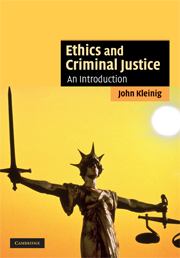Book contents
14 - Reentry and collateral consequences
Published online by Cambridge University Press: 05 June 2012
Summary
Even when the sentence has been completely served, the fact that a man has been convicted of a felony pursues him like Nemesis.
We have already noted that about 95 percent of those who are sentenced to prison are later released back into the community – several hundred thousand each year in the United States. You might think that once people had served their sentences – had, as it were, paid their debt to society – they could then resume their lives with all the rights and privileges of ordinary citizens. But that would portray the situation inaccurately. For many of those released from prison there are what are spoken of as the “collateral consequences” of their conviction. Some of these consequences, of course, are understandable. Those convicted of corporate fraud might be barred from returning to executive positions; those who have multiple convictions for driving under the influence may have their driving licenses suspended for a long period; and convicted child-molesters may be prohibited from employment that involves working with children. Such people have lost our trust, and, presuming that it can be done, restoration of such trust must be earned.
But the story is not just about risk management. It is also about status. At one time serious felons used to be subject to “attainder,” that is, the loss of all their civil rights, including rights to property and possessions, rights to inherit and bequeath, and the right to bring suit.
- Type
- Chapter
- Information
- Ethics and Criminal JusticeAn Introduction, pp. 252 - 267Publisher: Cambridge University PressPrint publication year: 2008



